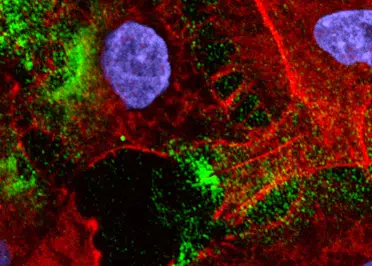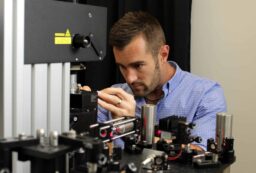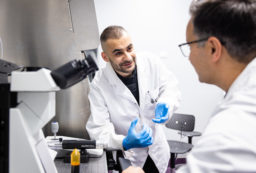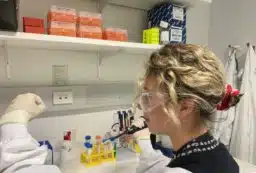A Sydney researcher has discovered a common, pneumonia-causing bacterium can shed living proteins, and may use this ability as a defence against our immune system.
“The process is called cleavage,” says Michael Widjaja of the University of Technology, Sydney.
“Bacteria use it to multiply their defences, effectively increasing the number of targets that our immune system, or antibiotics, need to attack.”
“What’s amazing is that these proteins maintain the functionality to live, communicate and even cause disease, instead of being disabled by the cleaving process,” says Michael.
Michael works with a small ‘simple’ bacteria called Mycoplasma pneumoniae.
This bacterium is one of the main causes of pneumonia outside of hospitals, in crowded towns and cities. And once it’s in you, it’s difficult to remove.
“Whilst we knew that cleavage occurred in bacteria, we’ve discovered it occurs far more than we thought in Mycoplasma pneumoniae, and that might be why this pneumonia is so hard to fight off,” says Michael.
Michael now hopes to discover the mechanism which this bacterium uses for cleavage – so he can find a way to stop it, and hopefully eliminate infections by Mycoplasma pneumoniae.
The work was published in the journal Proteomes.
Contact: Michael Widjaja, University of Technology, Sydney, Michael.Widjaja@student.uts.edu.au
Banner image: Immunofluorescence of Mycoplasma pneumoniae (seen in green) infecting lung epithelial cells (red with blue spheres) viewed under a microscope.






 Fresh Science is on hold for 2022. We will be back in 2023.
Fresh Science is on hold for 2022. We will be back in 2023.